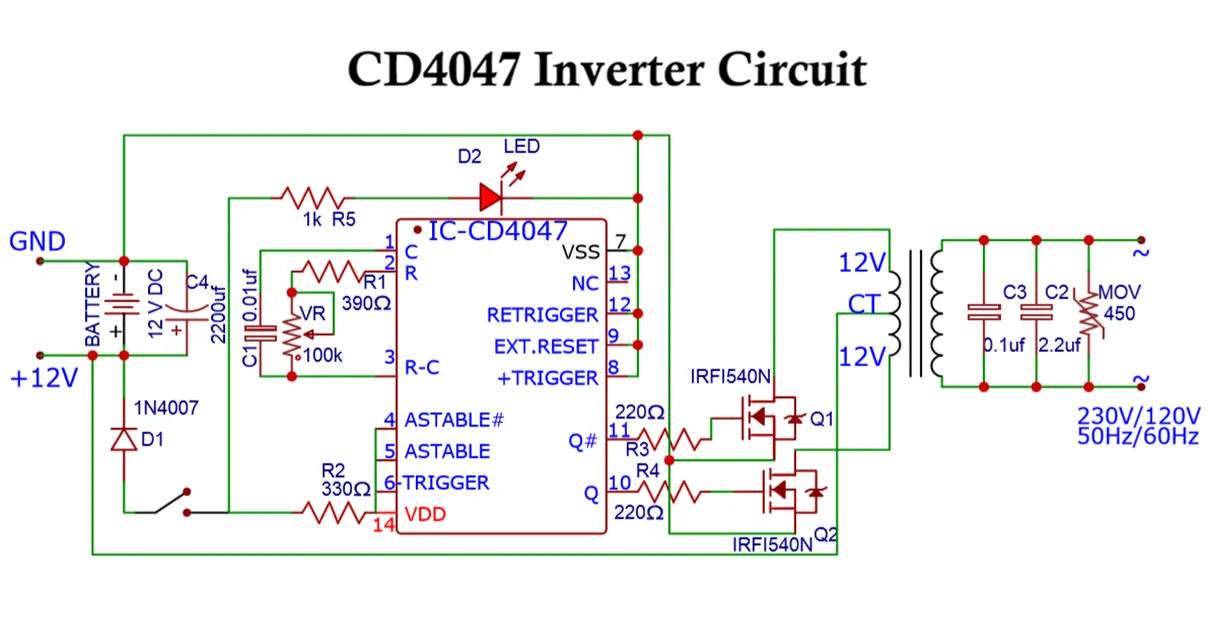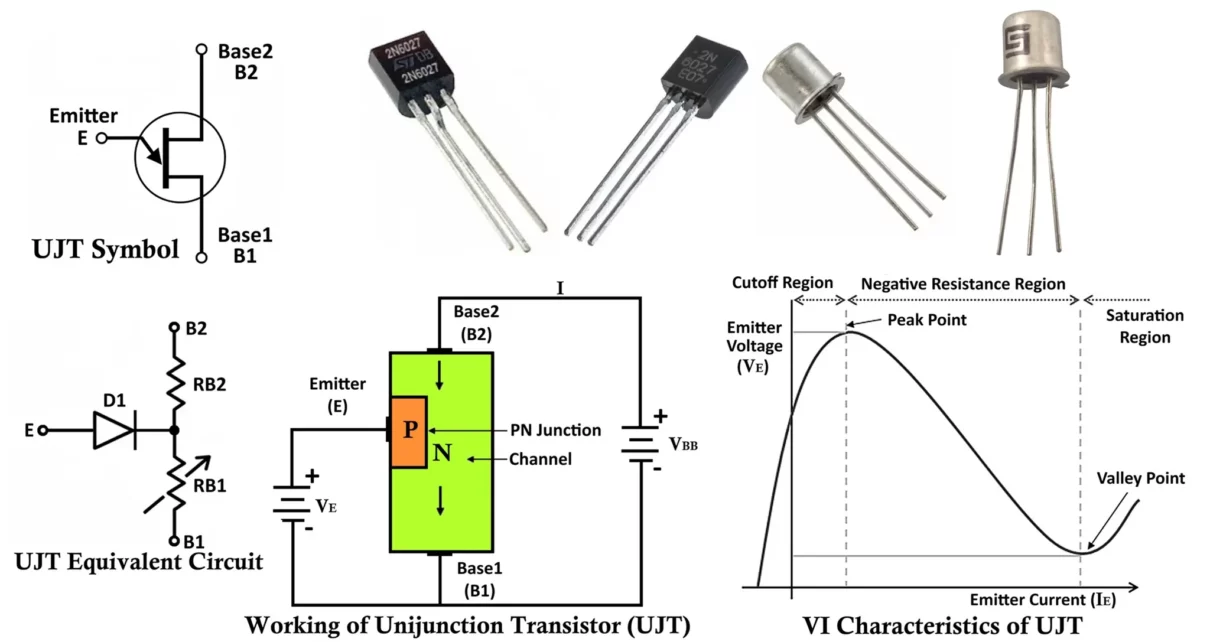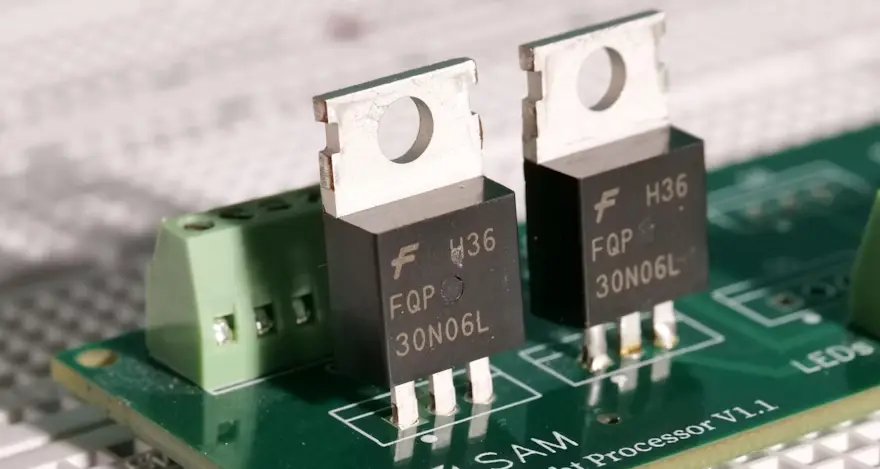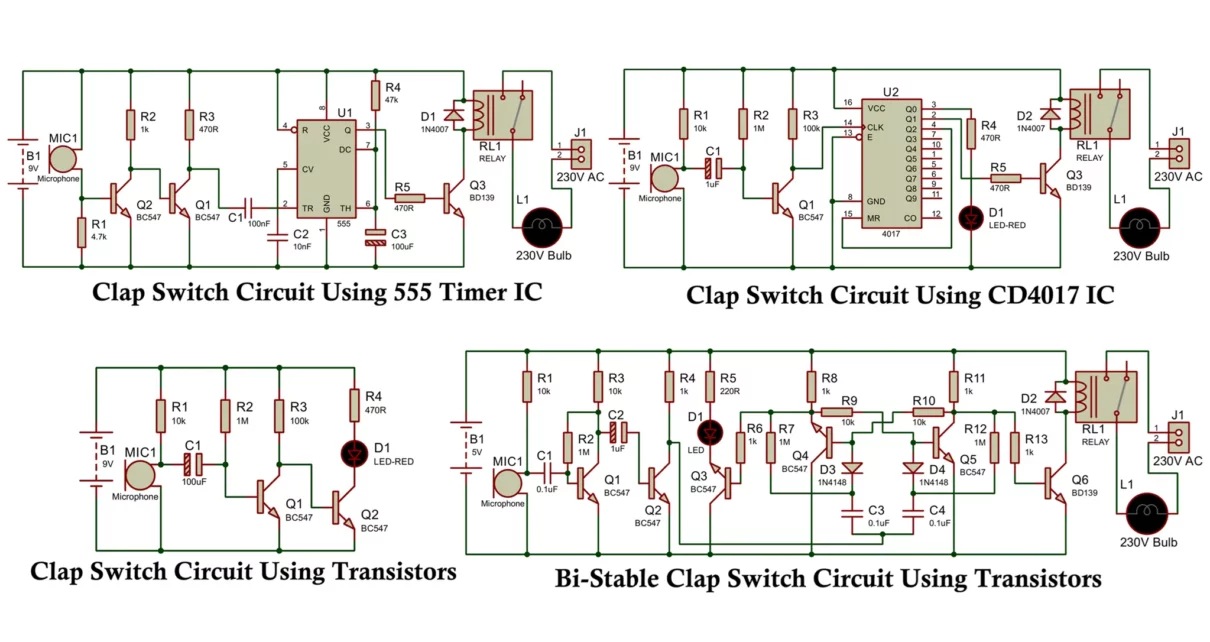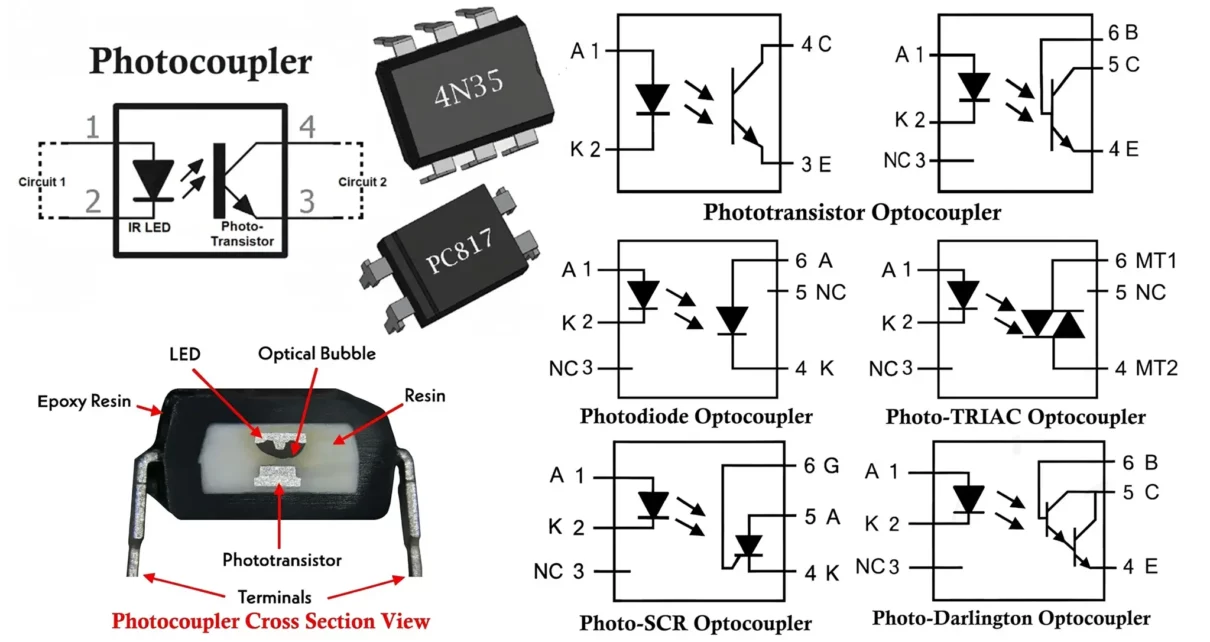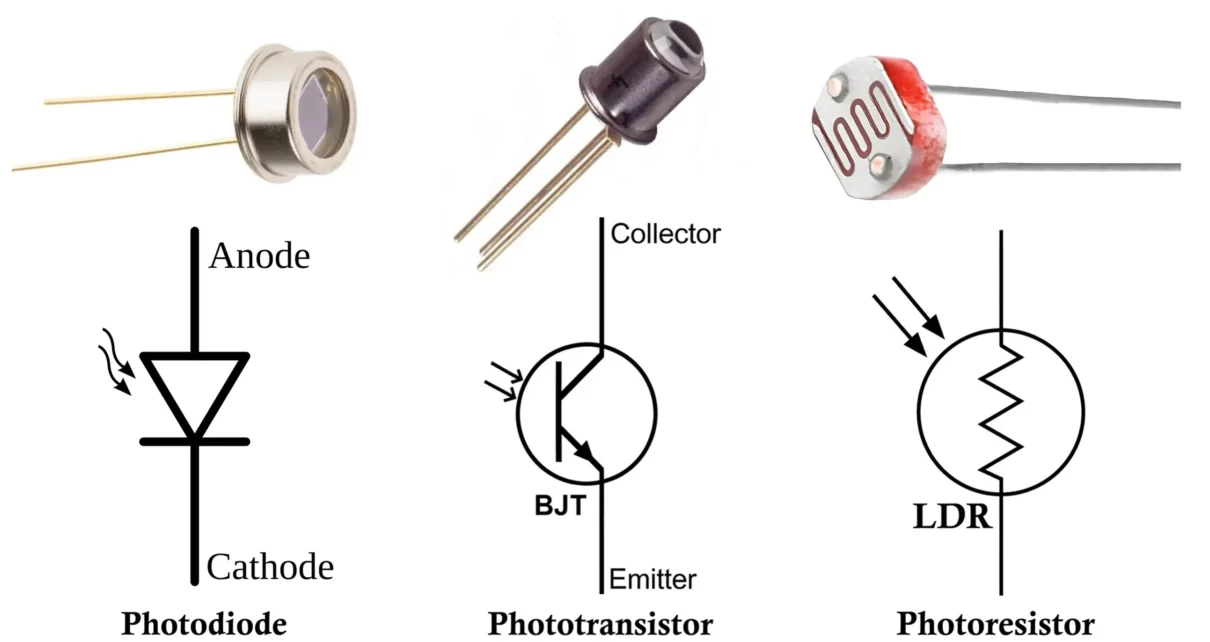In this project, we will make a CD4047 Inverter Circuit, and we will also discuss why this type of inverter is not a good or reliable solution for real-world applications. An inverter is an electronic device that converts DC voltage into AC voltage. Inverters play a very important role in power backup systems, especially in […]
Transistors
UJT Unijunction Transistor Symbol, Construction, Working & Applications
The Unijunction Transistor (UJT) is a three-terminal semiconductor device that is mainly used for triggering, pulse generation, relaxation oscillators, and phase control circuits. Unlike the Bipolar Junction Transistor (BJT) or Field Effect Transistor (FET), the UJT does not function as an amplifier; instead, it acts as a switching device with negative resistance characteristics. The UJT […]
Everyday Devices That Use Transistors (And You Probably Didn’t Notice)
Most people never think about transistors. They’re too small to see, hidden away inside the gadgets we use every day. But without them, modern electronics wouldn’t exist. From the phone in your pocket to the microwave in your kitchen, transistors quietly do the heavy lifting. So, what exactly are they, and where do you find […]
4 Simple Clap Switch Circuits Using NE555 Timer, CD4017 IC & Transistors
A clap switch circuit is a popular DIY electronics project that lets you control an electronic device by clapping your hands. The circuit uses the sound of a clap as a trigger to turn the device ON or OFF. It finds wide use in home automation, interactive projects, and temporary lighting solutions. In this article, […]
Photocoupler (Optocoupler / Optoisolator) – Construction, Working, Types & Applications
In modern electronics, signal isolation between different parts of a circuit is crucial for protection, noise reduction, and system stability. Optocouplers, also known as optoisolators, play a vital role in achieving this electrical isolation while allowing signal transmission. This article provides a thorough exploration of optocouplers (Optoisolator / Photocoupler), including their construction, working principles, advantages, […]
Difference Between Photodiode, Phototransistor and Photoresistor
In the field of electronics and optoelectronics, light-sensitive devices play a crucial role in converting light signals into electrical signals. Among the most widely used light sensors are the Photodiode, Phototransistor, and Photoresistor (also known as Light Dependent Resistor or LDR). Though they all respond to light, their construction, working principles, advantages, disadvantages, and applications […]
